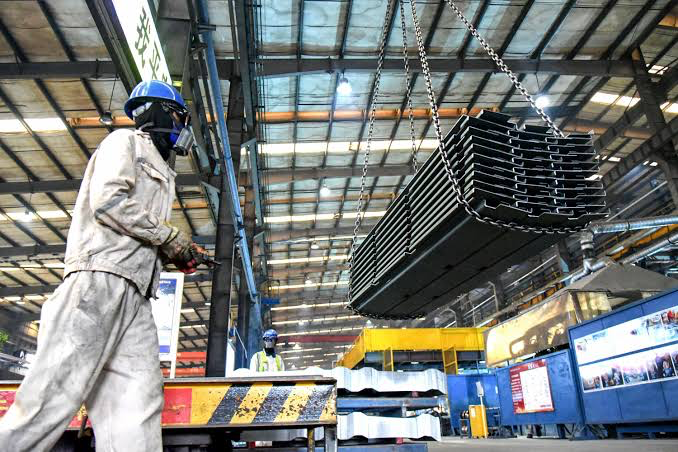In the first quarter of 2024, the Nigerian manufacturing sector faced an unprecedented rise in energy costs, compounding the challenges within the industry. According to exclusive data from the Manufacturers Association of Nigeria (MAN), local manufacturers spent a staggering N290 billion on self-generated energy during this period, highlighting the acute energy crisis affecting their operations.
This significant financial burden primarily resulted from the soaring prices of diesel and gas, which escalated due to fluctuations in global oil markets and local supply chain disruptions. At the close of the previous year, MAN’s records show that over 2000 member companies across various sectors had incurred N221.28 billion in energy costs. However, this figure surged as diesel prices spiked to N1,600 per liter in the first quarter, marking a 60% increase from the previous year.
The manufacturing sectors hit hardest by these rising costs were the food, beverage, and tobacco industries, with energy expenditures exceeding N100 billion. The motor vehicle and miscellaneous assembly sectors were also significantly impacted, spending approximately N55 billion on diesel and gas.
Concurrently, electricity tariffs experienced a drastic hike, with prices for Band ‘A’ customers rising from N68 per kilowatt hour (kWh) to N206.8 per kWh. This increase came despite deteriorating service levels, with manufacturers reporting an average daily electricity supply of only 8.5 hours, despite promises of at least 20 hours per day under the upgraded tariff band. This situation was particularly severe in Kwara and Kogi states, where factories received about six hours of power daily.
The implications of these challenges are profound. High energy costs not only escalated production and distribution expenses by 20.7% but also led to a decline in key manufacturing metrics. Capacity utilization fell by over 9.76%, production volumes dropped by 10.14%, and investments decreased by 5.16%. Employment in the sector also suffered, with a reduction of 5.27%.
Sales volumes declined by 7.16%, and shipment costs rose sharply by 22.16%, reflecting the broader economic strain on the manufacturing industry. These figures underscore the severe impact of energy costs on manufacturing productivity and competitiveness.
Frank Ike Onyebu, former chairperson of MAN’s Apapa/Amuwo-Odofin Branch, expressed grave concerns over the situation. According to him, the simultaneous increase in diesel and electricity prices has placed an unbearable financial strain on manufacturers. In April 2024 alone, his factory faced an electricity bill of N180 million, a dramatic increase from N80 million just a month earlier. He lamented that the hike in tariffs and the high cost of diesel were pushing many manufacturers to the brink of closure, with several considering relocation or shutdown.
The broader implications of these developments are significant, particularly under the African Continental Free Trade Area (AfCFTA), where Nigerian manufacturers struggle to remain competitive. The high operational costs not only hinder their capacity to compete locally but also on a regional scale, further isolating the Nigerian manufacturing sector from potential markets.
Dr. Muda Yusuf, Chief Executive Officer of the Centre for the Promotion of Private Enterprise (CPPE), echoed these sentiments. He highlighted that the reliance on self-generated power due to inadequate public supply has disproportionately affected the industry. The cost of diesel, which is pivotal for both power generation and logistics, has had a domino effect on production costs and pricing, erasing profit margins and forcing manufacturers to absorb these costs amid declining consumer purchasing power.
The first quarter of 2024 has been particularly challenging for Nigerian manufacturers, with escalating energy costs posing a significant threat to the viability of the sector. Stakeholders, including government and regulatory authorities, must urgently address these issues. They need to engage with the manufacturing community to find sustainable solutions that will stabilize energy prices and improve electricity supply. Only through concerted efforts can the sector hope to recover and thrive in an increasingly competitive global market.
Source: The Guardian



